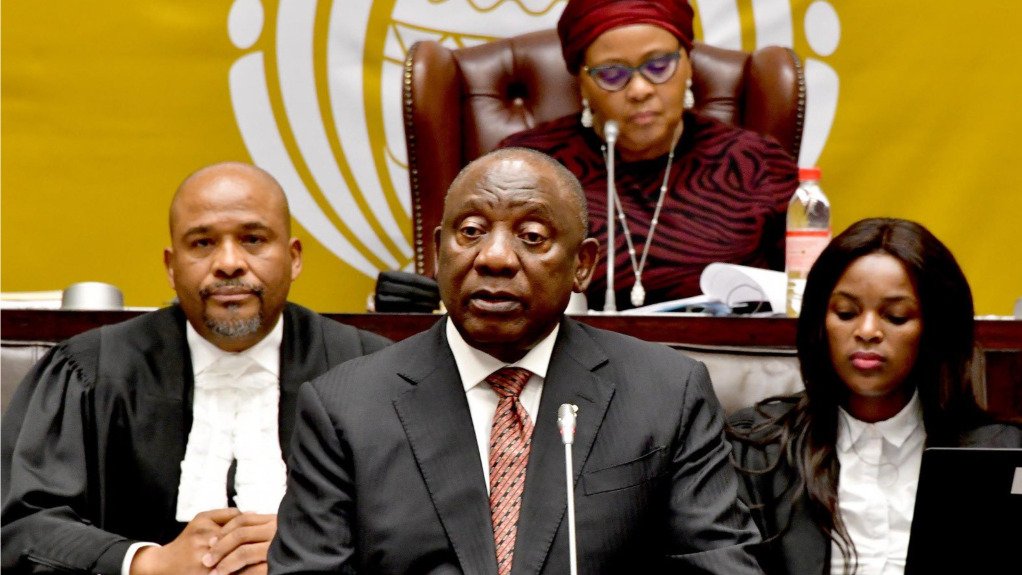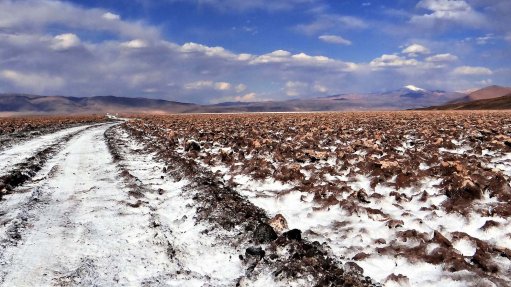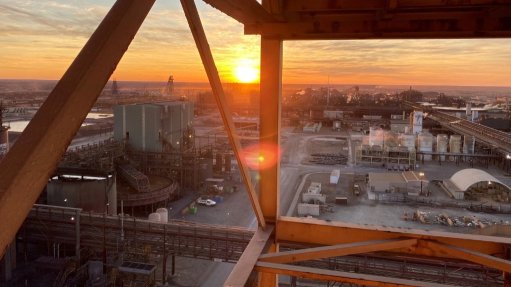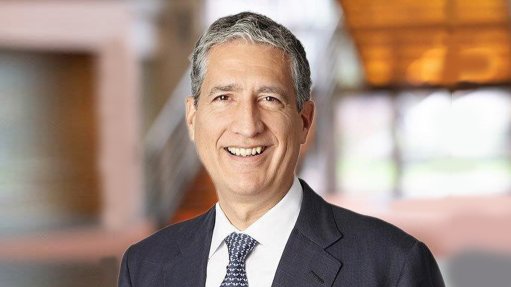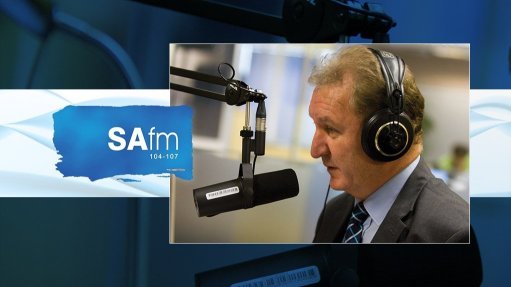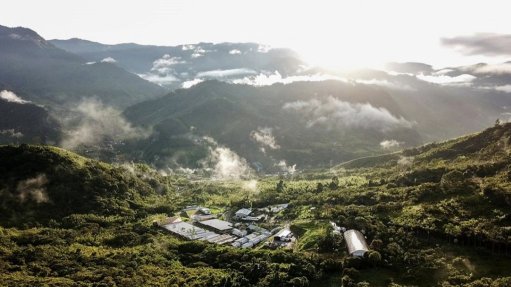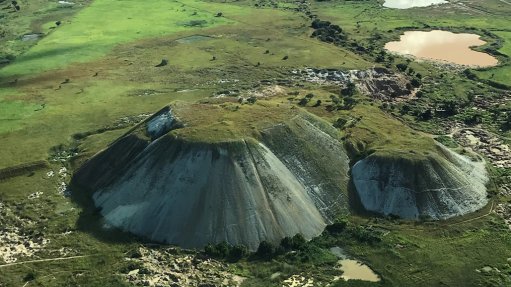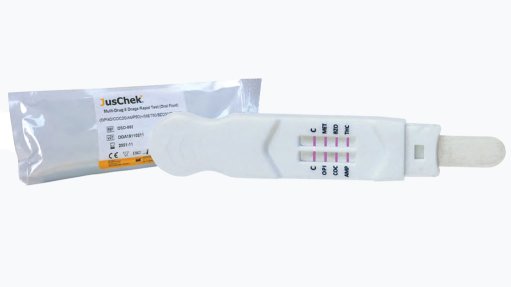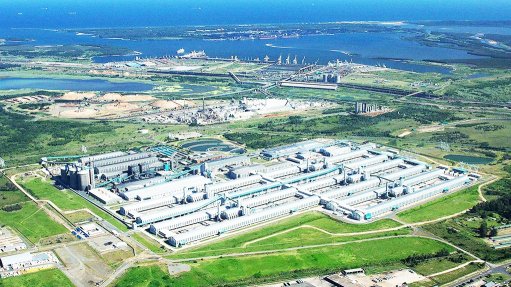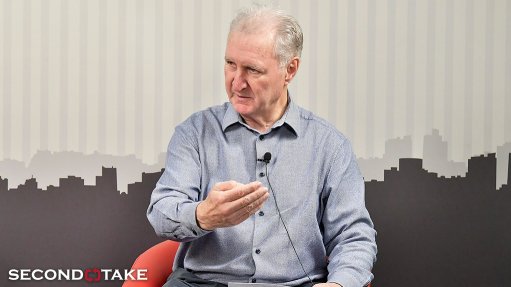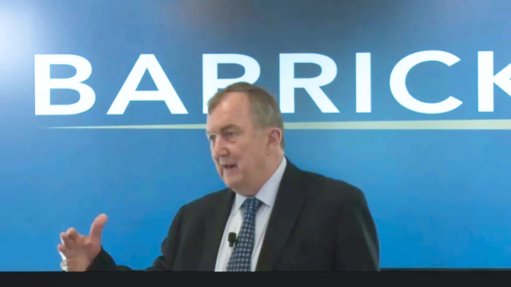10 GW distributed generation pipeline to help close shortfall in time – Ramaphosa
While warning of a difficult winter for electricity security, President Cyril Ramaphosa has again moved to highlight the success of a recent market reform that has enabled private distributed generation projects of any size to proceed without having to undertake an onerous licensing process.
Addressing lawmakers during his Budget Vote, Ramaphosa said that the amendment to Schedule 2 of the Electricity Regulation Act, which initially removed the licensing requirement for projects below 100 MW and was later adjusted to remove the threshold altogether, had stimulated significant investment activity.
He reported that there were more than 100 active projects at various stages of development, representing over 10 000 MW of new generation capacity and over R200-billion of private sector investment.
“The exponential growth of private sector investment in electricity generation is proof that this reform is having a major impact.
“These investments will significantly close the shortfall in electricity supply,” he said, against the backdrop of daily power cuts that were undermining the ability of the economy to grow and create employment.
His address followed the release of a first quarter progress update by Operation Vulindlela, which has been established to facilitate several economic reforms, including reforms designed to address the power crisis.
The report states that the elimination of the licensing threshold has “resulted in a massive surge of private investment in electricity generation which continues to outstrip expectations”.
It shows that, between January and March this year, the number of distributed generation projects above 10 MW registered with the regulator involved potential projects, primarily solar and wind, with a combined capacity of 2 427 MW.
This represented a sharp increase from the 1 664 MW-worth of registrations for 2022 as a whole, itself a substantial rise from the 134 MW registered during 2021.
Also highlighted in the report is a strong rise in requests for grid-connection budget quotes from Eskom’s Grid Access Unit. In total the unit has received budget-quote requests for projects with a combined capacity of nearly 13 400 MW, and has issued such quotes for projects with a combined capacity of 4 321 MW.
The report also offers some insight into when projects could begin helping to relieve the country’s debilitating power constraint, showing that more than 1 300 MW should enter commercial operation this year, followed by another 3 000 MW in 2024.
However, the President acknowledged that the progress made in opening the market to more participants – including plans for accelerated public procurement of coal, wind, gas and battery storage – was being undermined by the performance of Eskom’s existing generation fleet, which “continues to deteriorate as a result of its age and a legacy of poor maintenance, underinvestment and corruption”.
“We face a difficult winter ahead, as demand increases and several units at Medupi, Kusile and Koeberg power stations are currently under repair and remain offline.
“These six units alone represent approximately 4 500 MW of capacity, or between four and five stages of load shedding. The situation will improve as we return these units to service towards the end of this year.”
Democratic Alliance leader John Steenhuisen slammed Ramaphosa’s performance since his so-called ‘New Dawn’ address of four years ago, arguing that he had broken every promise since his inaugural speech as President, including on the power crisis.
“What he did was plunge South Africa into Stage 6 loadshedding,” Steenhuisen said, after listing several other failings in areas ranging from poverty reduction, crime and violence, to tackling corruption, social welfare and education.
Economic Freedom Fighters deputy president Floyd Shivambu, meanwhile, said that the solution to the immediate crisis lay with connecting powerships and importing electricity from Mozambique, while the longer-term solutions lay with coal and nuclear.
Comments
Press Office
Announcements
What's On
Subscribe to improve your user experience...
Option 1 (equivalent of R125 a month):
Receive a weekly copy of Creamer Media's Engineering News & Mining Weekly magazine
(print copy for those in South Africa and e-magazine for those outside of South Africa)
Receive daily email newsletters
Access to full search results
Access archive of magazine back copies
Access to Projects in Progress
Access to ONE Research Report of your choice in PDF format
Option 2 (equivalent of R375 a month):
All benefits from Option 1
PLUS
Access to Creamer Media's Research Channel Africa for ALL Research Reports, in PDF format, on various industrial and mining sectors
including Electricity; Water; Energy Transition; Hydrogen; Roads, Rail and Ports; Coal; Gold; Platinum; Battery Metals; etc.
Already a subscriber?
Forgotten your password?
Receive weekly copy of Creamer Media's Engineering News & Mining Weekly magazine (print copy for those in South Africa and e-magazine for those outside of South Africa)
➕
Recieve daily email newsletters
➕
Access to full search results
➕
Access archive of magazine back copies
➕
Access to Projects in Progress
➕
Access to ONE Research Report of your choice in PDF format
RESEARCH CHANNEL AFRICA
R4500 (equivalent of R375 a month)
SUBSCRIBEAll benefits from Option 1
➕
Access to Creamer Media's Research Channel Africa for ALL Research Reports on various industrial and mining sectors, in PDF format, including on:
Electricity
➕
Water
➕
Energy Transition
➕
Hydrogen
➕
Roads, Rail and Ports
➕
Coal
➕
Gold
➕
Platinum
➕
Battery Metals
➕
etc.
Receive all benefits from Option 1 or Option 2 delivered to numerous people at your company
➕
Multiple User names and Passwords for simultaneous log-ins
➕
Intranet integration access to all in your organisation



